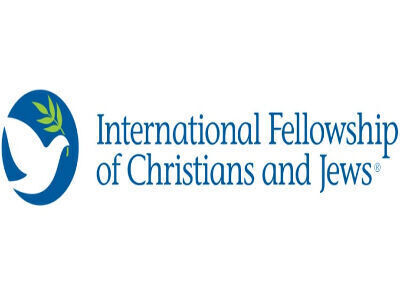UK sees lessons from Northern Ireland that could aid the fragile Gaza ceasefire process
News > Top Stories

Audio By Carbonatix
12:01 AM on Saturday, October 18
By SYLVIA HUI and JILL LAWLESS
LONDON (AP) — As Israelis and Palestinians wait anxiously to see what comes after a ceasefire in the two-year war in Gaza, the experience of the Northern Ireland peace process in the 1990s may offer lessons in the thorny process of moving from seemingly intractable conflict to enduring peace.
Two key figures who helped steer the Northern Ireland peace process — former British Prime Minister Tony Blair and his former chief of staff, Jonathan Powell — have returned to the international spotlight due to their involvement in talks with the U.S. and other countries about the future of Gaza.
Prime Minister Keir Starmer said this week that “drawing on our experience in Northern Ireland, we stand ready to play a key role in the decommissioning of Hamas’ weapons and capability.”
Around 3,600 people were killed and 50,000 wounded during “the Troubles,” three decades of violence involving Irish republican militants determined to wrest Northern Ireland out of the United Kingdom. After years of false starts and setbacks, a peace accord was struck in 1998 that largely ended the conflict and led to the disarming of the Irish Republican Army and other militant groups.
The Trump-backed plan for Gaza is far narrower and does not address the broader Israeli-Palestinian conflict, which began decades before the latest war. It also provides no clear path to Palestinian statehood, something Israel rejects but that is seen internationally as the only way to resolve the conflict.
The plan calls for Hamas to disarm, something the militant group insists it will not do — although it has expressed a willingness to hand over some weapons to a Palestinian or Arab body. In Northern Ireland, the IRA’s reluctance to give up its weapons was a main sticking point that threatened to derail the peace process.
Experts say there are parallels — but also major differences — between the Northern Ireland conflict and the devastating war in Gaza, which was sparked by Hamas’ Oct. 7, 2023, attack on Israel, in which 1,200 people were killed and 251 taken hostage.
Israel's retaliatory offensive has reduced much of Gaza to rubble, led to famine in some areas and killed nearly 68,000 Palestinians, according to the territory's Health Ministry, which is part of the Hamas-run government and maintains detailed casualty records that are seen as generally reliable by U.N. agencies and independent experts.
“The level of challenge in the Middle East now is monumental,” said Kristian Brown, a politics lecturer at Ulster University in Belfast. “The level of bitterness, the sense of immediate threat and the levels of destruction (in Northern Ireland) were not as cataclysmic as Gaza.”
The Irish Republican Army eventually agreed to put its arsenal “beyond use” by way of a secret process supervised by an international commission. Disarmament ran in parallel to efforts to resolve political disputes at the heart of the conflict, something that more than three decades of U.S.-led peace efforts in the Middle East have failed to accomplish.
It was slow going: The first batch of IRA weapons was decommissioned in 2001 and the last in 2005, seven years after the Good Friday Agreement. Several other British loyalist and Irish republican militant groups also disarmed as part of the process.
“The British might be able to counsel patience and pragmatism,” said Niall Ó Dochartaigh, a professor of political science at the University of Galway. “The IRA leadership had to be helped in various ways to make that argument (for disarmament) within the organization.
“Ultimately, decommissioning only happened in the Irish case once the IRA was satisfied that there was a political settlement bedded down,” he added. And while “the contours of a compromise settlement emerged quite early in Northern Ireland,” a similar consensus in the Middle East appears far off.
The 20-point plan for Gaza sets out a sweeping vision, from ceasefire to peacemaking -– but leaves big gaps about how it will all be achieved. And it says nothing about the thorniest issues that divide Israelis and Palestinians, including the status of Jerusalem, the return of Palestinian refugees, security arrangements, future borders and the scores of Israeli settlements in the occupied West Bank.
The Good Friday Agreement was more detailed about the structures that would be established in Northern Ireland to underpin peace, including a legislature and government. It was the product of two years of U.S.-backed negotiations that helped build trust between sworn enemies. But peacemaking was still slow and fragile.
Four months after the Good Friday agreement, IRA dissidents set off a car bomb in the town of Omagh, killing 29 people in the deadliest single attack of the conflict.
Today, dissidents still attempt occasional small-scale attacks. The power-sharing political system set up under the peace agreement has collapsed several times. Amnesties mean killers have gone free and some victims have not received justice.
Yet peace has largely held. Political parties once linked to violent groups, including the IRA-allied Sinn Fein, play a major role, with former gunmen and bombers among those who now sit as lawmakers.
"Engaging those involved with violence and bringing them down democratic paths” was key to the success of Northern Ireland's peace process, according to Peter McLoughlin, a senior lecturer in politics and history at Queen’s University Belfast.
He said excluding Hamas, which has ruled Gaza since 2007, in the future of the strip, could be a problem.
“If there was a broad lesson from the success of Northern Ireland, it’s that an inclusive process worked – and I mean inclusive in the full sense, all different parties, even including militants," McLoughlin said.
“Hamas is being excluded from the political process and is expected to give up its weapons," he added. “I don’t know how feasible that is.”
Starmer's reference to the U.K.'s experience in monitoring ceasefires no doubt refers to the achievements of Blair and Powell.
President Donald Trump has said Blair, who was U.K. prime minister between 1997 and 2007, is a potential member of a “Board of Peace” to oversee administration and reconstruction in Gaza.
Blair has long experience in the Middle East, having served as an envoy to Israel and the Palestinians for the "Quartet" — the U.S., European Union, Russia and the United Nations — for eight years until 2015.
He also played a pivotal role — along with then U.S. President Bill Clinton — in putting together an international coalition that conducted airstrikes in 1999 to end Yugoslav President Slobodan Milosevic’s crackdown on independence-seeking ethnic Albanians in Kosovo.
But Blair is also a highly controversial figure because of his decision to take Britain into the U.S.-led invasion of Iraq in 2003. Trump has acknowledged that Blair might not be “an acceptable choice to everybody” in the region.
Powell, meanwhile, is now Starmer’s national security adviser and attended Trump’s summit in Egypt. U.S. Middle East special envoy Steve Witkoff praised Powell’s “incredible input and tireless efforts” in reaching the agreement.
Bronwen Maddox, the director of Chatham House, the U.K.-based international affairs institute, was skeptical about drawing parallels between the two processes. She said Britain “can play a small diplomatic part” in Gaza, but probably not a decisive one.
The Northern Ireland peace deal “was a successful and really important peace negotiation," she said. "But it was very much of itself, I think.”










